Organised by Groupe Roullier and its Centre Mondial de l’Innovation, “the Innovation Awards Groupe Roullier 2018” will reward two researchers or research laboratories for the value of their dossiers in relation to the Group’s areas of expertise in Plant Nutrition. Each of the two Competition winners will be offered the opportunity to develop their research project over the course of a year in collaboration with Groupe Roullier with €60,000 of funding. Candidates can submit their projects on the dedicated website www.innovation-awards-roullier.com until 28 February 2018.
The competition is open to all researchers and laboratories across the world working in the following areas:
The aim of this Prize is to promote scientific collaboration and innovation, as well as to develop research activities in Plant Nutrition. The dossiers submitted on the dedicated website www.innovation-awards-roullier.com before 28/02/2018 will be examined by a jury of international experts. The winners will receive their awards at the prize-giving which will take place in Saint-Malo in June 2018.
The creation of this competition follows on from the opening of the Centre Mondial de l’Innovation Roullier at the end of 2015. A true driver of growth and a major player in the field of Plant and Animal Nutrition, it brings together around one hundred doctors and researchers from across the globe. Its opening also accelerated the number of international scientific partnerships, which increased from 70 to more than 100 in just a few months.
On the 5th and 6th of December last year, the Animal Nutrition R&D teams from the CMI presented three scientific studies at the 3R event, an international francophone conference on research in ruminant species. Whether in the fields of nutrition, animal wellbeing, genetics, farming or animal health, all the latest scientific advances are on display at the event.
Among these were the presentations by the CMI, with an oral presentation by Pierre Gaignon, a young doctoral researcher at the INRA in St-Gilles. His work on the effect of restrictions of calcium input during the beginning of lactation aimed to understand the role this mineral plays in milk production, and on bone metabolism in dairy cows.
• Poster 1: From in vitro to in vivo: effect of Mix 3.0 on ruminate fermentation, and effect of Qualix on dairy cows’ performance and environmental impact;
• Poster 2: Effect of macro-algae seasonality on in vitro rumen fermentations.
Having opened in 2016, the Animal Nutrition laboratory at the CMI Roullier has once again proven its capacity for dynamic inventiveness, offering innovative solutions for ruminants.
On last Wednesday, September 12, on the occasion of the international exhibition for animal production (SPACE 2018), our HR teams from TIMAC AGRO France and TIMAC AGRO International organized together an AfterWork at the Château d’Apigné.
The purpose of this event, held in a human size format, was to make us known in an original and friendly way. First of all, Nicolas Vermersh (Centre Mondial de l’Innovation Roullier Director), Cyril de Bernis (Centre-Normandie Agro-Supply Director) and Jean-Baptiste Moussière (Regional Director within TIMAC AGRO France) presented their professional background and experiences in our company.
The evening continued with a special edition of the “Burger Quiz show” dedicated to agriculture. Finally, the participants were able to meet other internal ambassadors during a cocktail.
In 2021, TIMAG AGRO France was an official partner of French Agriculture Week, a nationwide celebration of this vital industry from May 13-24. In addition to their partnership, TIMAC AGRO FRANCE published a series of educational videos to provide an interesting and dynamic way to share some of TIMAC AGRO’s expertise with other agricultural actors in France.
Video 1: Do plants already have all the nutrients they need in the soil?
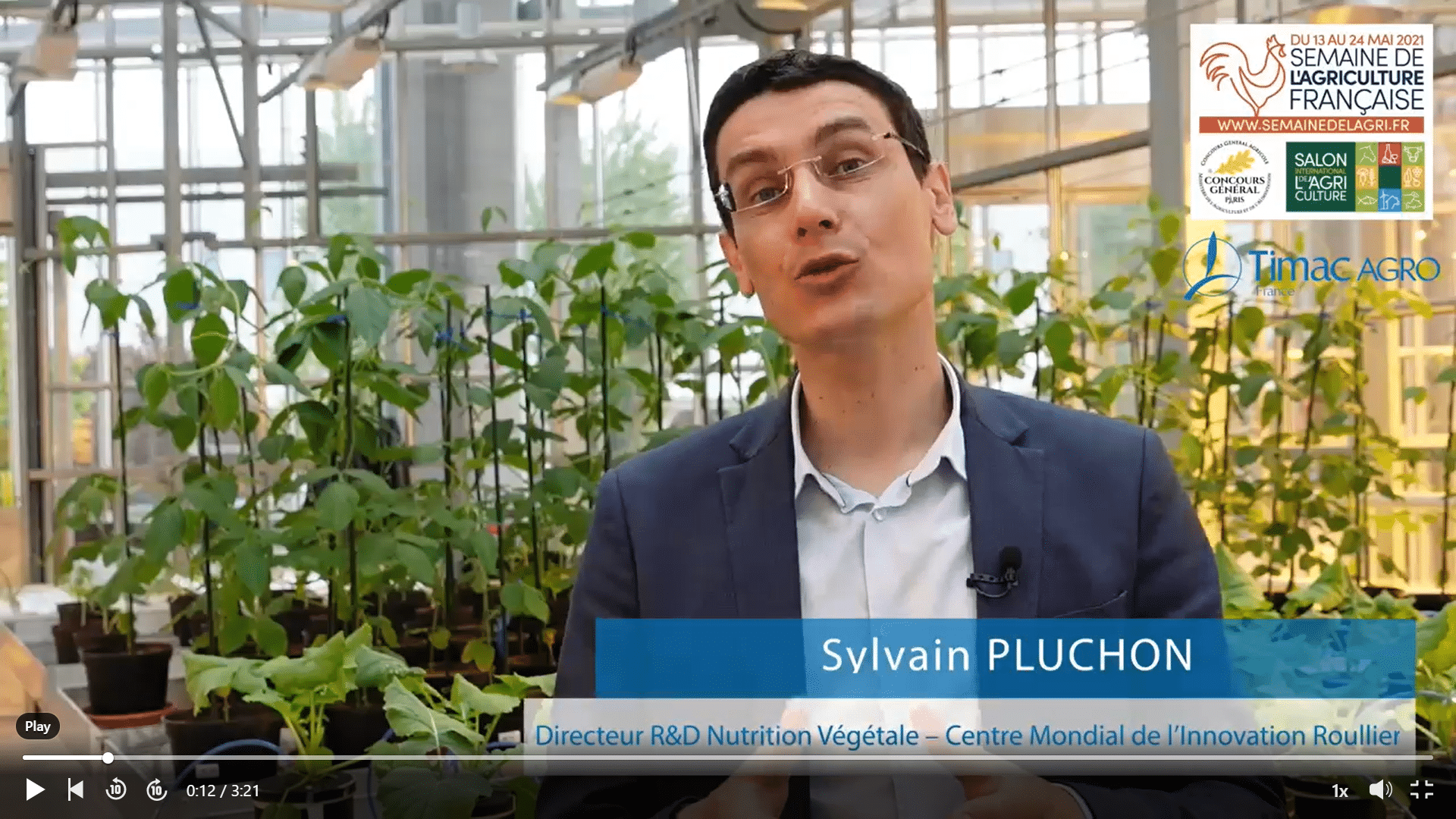
Video 2: Do organic farms need fertilizers?
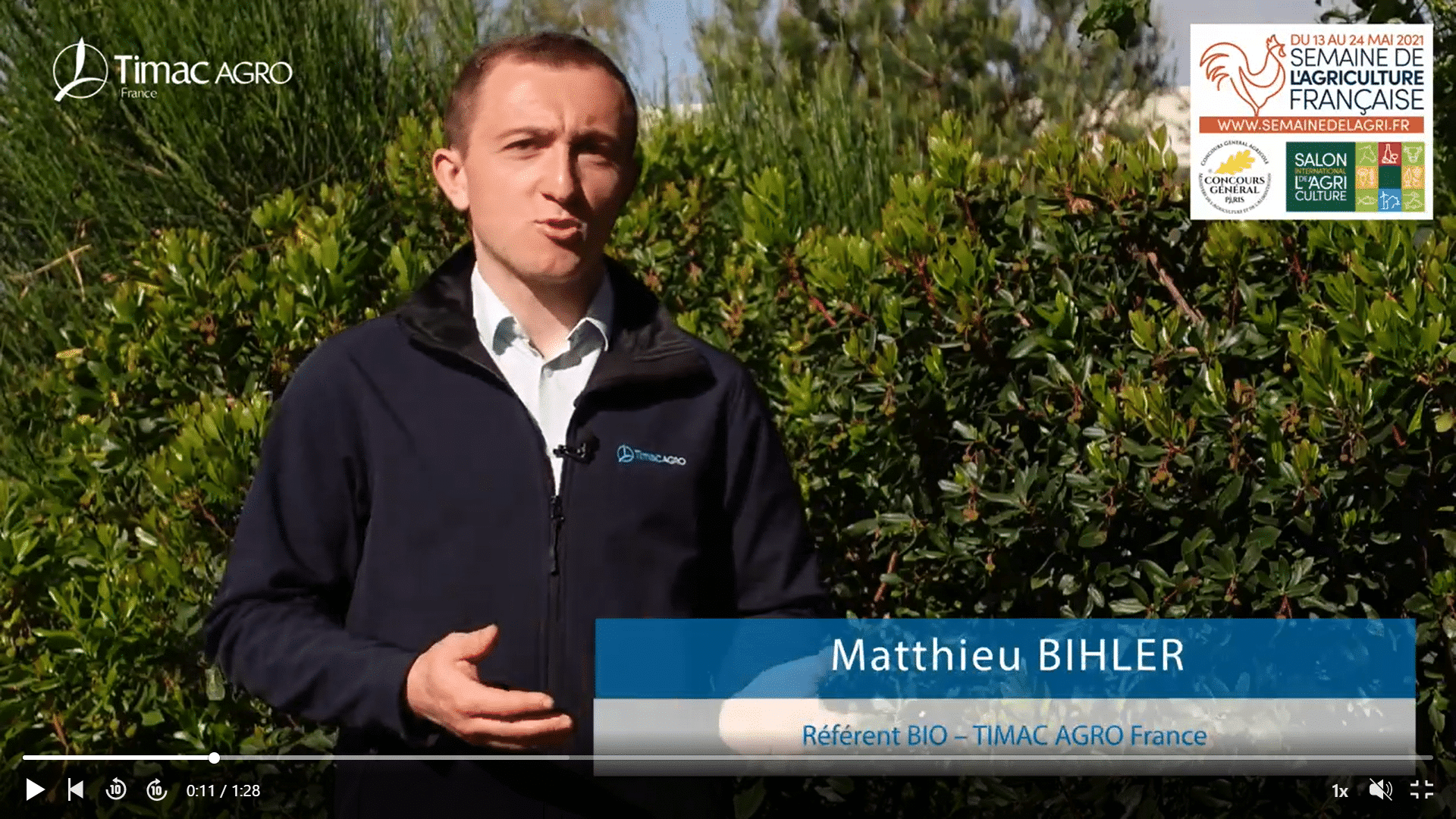
Video 3: Is any source of calcium beneficial for soils?

Video 4: Do ruminants need assistance to make the most out of their feed
Video 5: Does France need fertilizer plants?
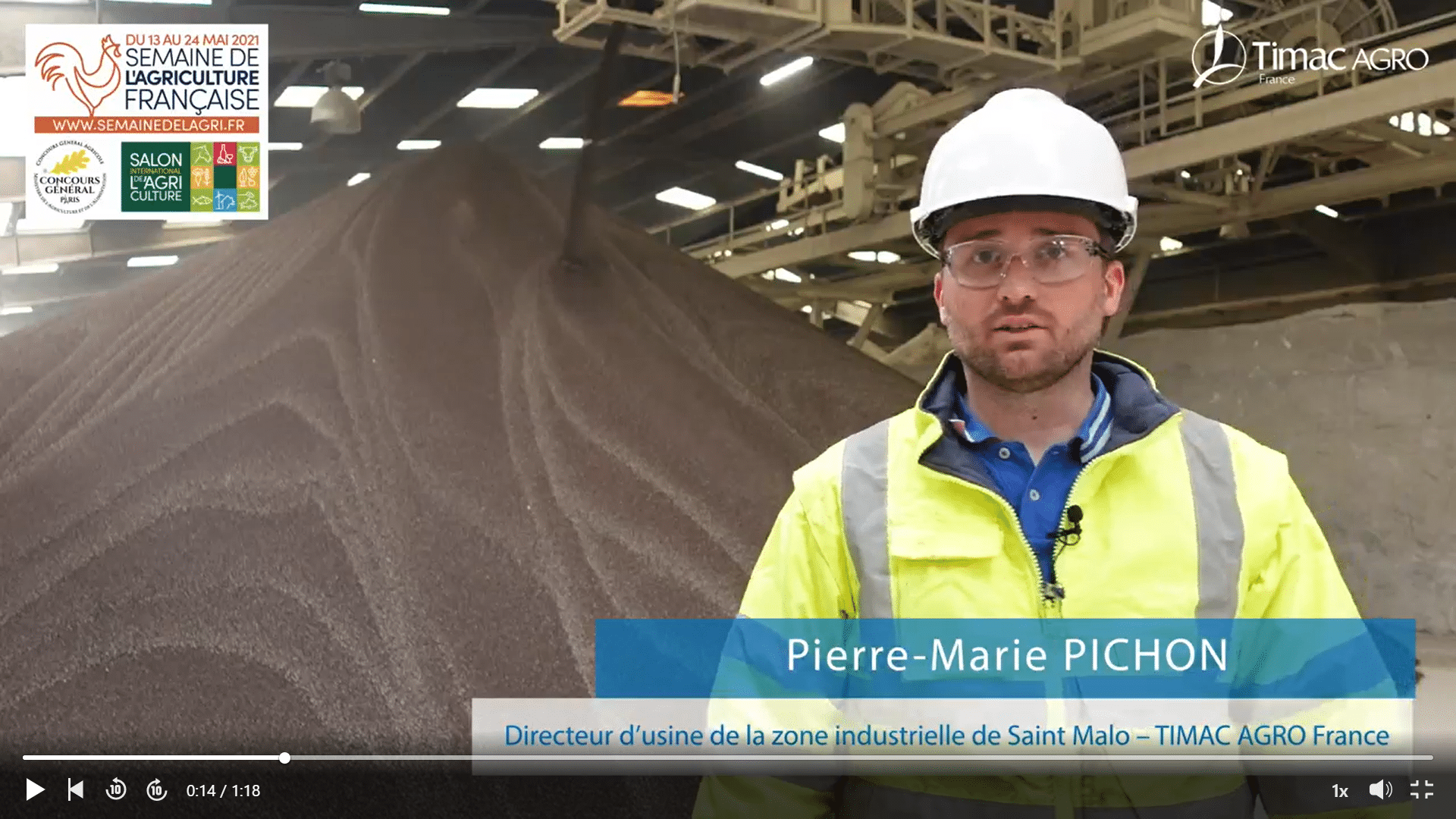
TIMAC AGRO’s teams demonstrate exceptional commitment in all the countries where we are present and are fully focused to protect our distribution channels and to provide farmers with our solutions.
Our top priority is the protection of our 5800 employees and partners’ health. Everywhere, we are working on delivering concrete local solutions.
TIMAC AGRO stands out for its mastery of industrial processes, powered by the excellence of its teams. To develop the teams’ skills and share the professional know-how of the different sites, TIMAC AGRO has created the Agile Industrial Management program (AIM).
This in-house program brings together industrial managers from TIMAC AGRO teams for a 12-month training including seminars, courses, coaching and a flagship project. Launched in 2020, AIM has already enabled a dozen international profiles to develop and strengthen our industrial network.
In April 2023, the second promotion met at TIMAC AGRO Italia’s Ripalta plant. The local team (two of whom were previous members of the AIM program) welcomed all participants for a week-long training. The week included theoretical training and workshops on safety, TIMAC AGRO solution formulations, maintenance management, lean management and more. These learning moments were complemented by three visits to industrial units, a granulation unit (to discover granulation made in TIMAC AGRO), a phosphate cave (but what is a phosphate and superphospate cave?) and a liquid workshop. With the same objective of reinforcing everyone’s industrial culture, the week also included a visit to the Naster adhesive film plant in Martinengo, with its very different industrial processes and organization.
Held six months after the start of the training, this face-to-face seminar also provided an opportunity acknowledge the progresses made by each participant on their projects. Each of them is in charge of a 1 year project to be carried out over on their industrial site (energy optimization of a granulation unit, increased production capacity of a liquid fertilizer plant, creation of a new workshop, etc.), to be presented at the end of the training course.
A week of immersion at a TIMAC AGRO Italia industrial site, full with learning, exchange and sharing experiences. This meeting helped reinforce industrial skills and management methods, while strengthening the bonds between all the members of the class. A necessary reminder, if any were needed, that the TIMAC AGRO teams possess unique know-how and are committed to promoting and developing the industrial excellence that characterizes them.
Join the TIMAC AGRO adventure, visit our career site to join our teams: Recruitment – TIMAC AGRO
Soil salinization is a key issue : it is the process where water-soluble salts accumulate in the soil. This issue impacts crop production globally, affecting 20% of cultivated land. Of this, 33% is irrigated and considered salt-affected and degraded.
Soil salinity can be caused by natural causes like mineral weathering but also by human activities like intensive farming. Excessive irrigation can cause more soil salinity.
Excessive soil salinity reduces crop productivity, undermines agricultural sustainability. This problem is particularly severe in arid and semi-arid regions worldwide.
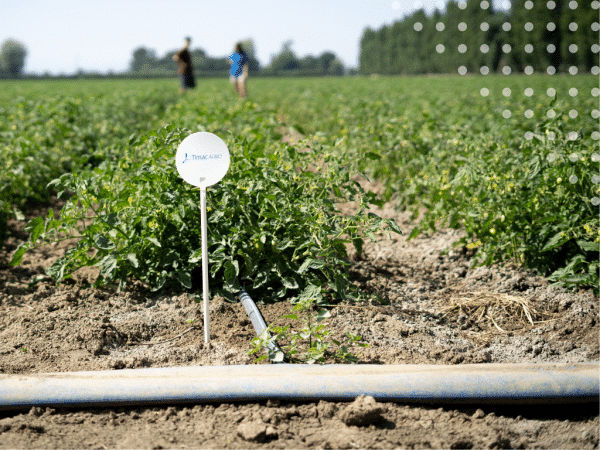
TIMAC AGRO’s technologies can help decrease salination while using fertirigation. Different TIMAC AGRO technologies have impacts : technology K-UP helps decrease soil salination by 89%. K-UP is a technology for potash fertilizers that reduces the saline effect of potash, as well as washout issues in soil.
KSC water-soluble fertilizers range for fertigation is composed of the Phyt-Actyl technology. This technology is an organic complex composed by seaweed extract, that acts as a phytoregulator precursor. Other component as pH-EC regulator are helping maintaining perfect pH and EC in water solution. Fertilizers used in fertigation are salts and therefore induce conductivity. Thanks to high quality raw materials and organic compounds in the KSC range, it helps in decreasing risk of water solution salination in soils.
By understanding and addressing the causes of soil salinization, TIMAC AGRO helps avoiding more salination in soil water. We also help improve crop productivity and ensure agricultural sustainability. Implementing better irrigation practices and using the right supplements can help combat the growing salinity of soil water.
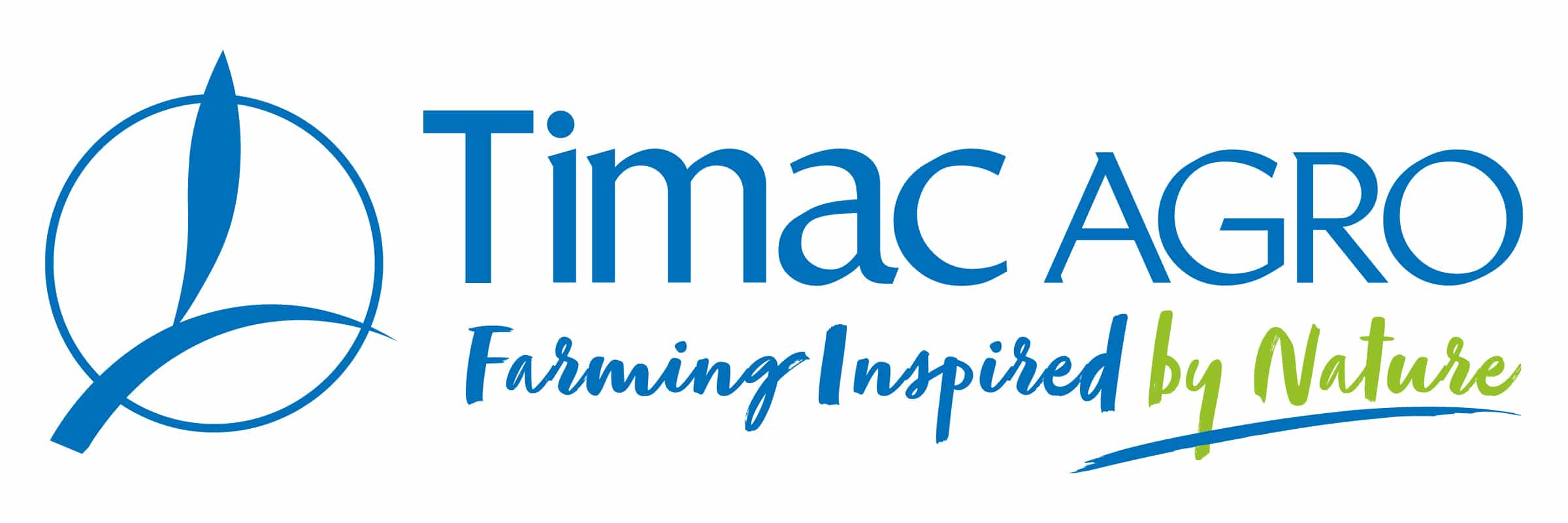
Did you know that up to 80% of banana losses is due to quality problems ?
Banana is one of the main export fruits in the world, so it is important to work on maximizing yield while improving fruit quality to meet the requirements of international markets.
Quality can be defined as the sum of different criteria along the supply chain:
Banana is a crop that requires a balanced fertilization, and it is essential to provide the nutrients in the right time to ensure a good crop performance. The supply of Phosphorus
must be ensured for a good root development and establishment of the crop and Calcium for a good fruit quality.
The banana tree has roots with weak penetration force in the soil, poor ability to extract water from dry soils, thus low drought resistance. “The loss of 10 cm of roots can decrease between 1,200 and 2,800 kg of fruit per ha per year depending on the agroecological conditions of the field (Serrano, 2003).”
Although phosphorus needs in terms of quantity are low when growing bananas, it is an important nutrient as it is directly linked to root development. The lack of phosphorus produces a poor root development, affecting plant’s growth and yield, therefore it is important to provide phosphorus with high and prolonged availability at planting to favor root development, enhance nutrient and water absorption and for a strong flower production.
Calcium is a key element needed in this crop to ensure high fruit quality with long term storage potential.
One of the major and well-known quality issues in banana is “Maturity Bronzing ”, a physiological disorder caused by a low absorption of calcium by the plant in dry seasons. Several scientific reports demonstrate the close relationship of the disease with calcium deficiencies in times of drought.
Issue “Maturity Bronzing” in banana
Oxidation of the tissue due to the lack of calcium
Due to calcium deficiency during fruit filling, the cells of the epidermis and cuticle are not elastic enough during endocarp expansion and fracture, releasing phenolic compounds (dopamine), which oxidize the tissue and generate the typical tan, which impacts negatively in the commercialization of the fruit.
Source: Moreno et al. (1999) –Venezuela
TIMAC AGRO Technologies are perfectly adapted to improve the calcium uptake and transport to the banana and hence reduce its physiological plant disorders!
What’s at the center of our representatives’ career? Proximity! In 2014, Ricardo comes back to his work as a representative for TIMAC AGRO Portugal and meets José Cecilio, a local producer of his region. 13 years after, he’s proud to say that José is way much more than a client: he’s a friend.
What is your “TIMAC AGRO” story?
I started working for TIMAC AGRO in July 2009. In 2013, I got an opportunity to work as a production manager on a farm – I stayed there for one and a half years. In 2014, I returned to work for TIMAC AGRO: I missed human relations and my daily exchanges as a representative. So I came back with new skills and a fresh perspective on my business. Today I work in the south of Portugal, in the Alentejo region.
Which friend did you want to talk about?
José Cecilio. He is a rice producer and owner of the “”Herdade de Gaxa”” farm. He diversified his activities with a “”montado de sobro”” (cork oak forest) and a herd of cows that graze in irrigated and non-irrigated grasslands. And he is a friend.
How did you meet?
Marco Morais, the General Manager of TIMAC AGRO Portugal, introduced us. We started, of course, by engaging in business discussions. And then we began to talk about other things:
We shared our hobbies and talked about life outside of work. I met his family, I went to his house, and he went to mine. At this point, we can call it friendship!
How long have you known each other?
I have known José Cecílio for 13 years now. Long enough to say that our friendship is solid and that our commercial activity has become secondary at this stage!
What has this friendship brought you?
José Cecilio is a friend I can count on, and that means a lot to me. Professionally, it has also meant a lot to me: José is one of the reference operators in his region, and his expertise is widely recognized.
Our subsidiaries in more than 40 countries make TIMAC AGRO a global company, with a large variety of cultures and crops. But what is the core of our representatives’ work? Being close to the farmers and their needs! During their career, they sometimes meet producers that become friends. That’s the story of Szymon Wilczyński, TIMAC AGRO Polska representative, and of his friend Adam Majchrzak, local producer.
Can you tell us a bit more about yourself and your story?
My name is Szymon Wilczyński. I have been working for TIMAC AGRO Polska for a few years now. As a representative, I had the opportunity to meet new people and, in particular, Adam Majchrzak. Adam runs a farm of about 300 ha and has a herd of 200 dairy cows: at first, he was just a customer, but now I am pleased to say he is a friend.
How did you meet?
I met Adam through my cousin, who is an animal scientist. He first met Adam by helping him with his dairy cows. At the time, I had just started my work as a TIMAC AGRO Polska representative. We decided to organise a meeting at the Rolnik cooperative – whose president was Adam – so that I could present the TIMAC AGRO offer.
Adam had recently had problems with his previous supplier of livestock products: I arrived at the right time to recommend solutions to him.
How did that work out?
Fantastic! We started having business meetings at least 2-3 times a month, where I would advise Adam. But soon, we started talking about other things, our lives, and seeing each other off the farm.
Our spouses got along very well, our dogs too, and it turned out that Adam even had a son and daughter about the same age as my children.
How is your relationship today?
Excellent! We travelled to the mountains together in the spring and climbed snowy peaks. Last month, we even spent a holiday by the sea. Adam had the opportunity to test our new TIMAC AGRO solution for animal nutrition on his farm, where he even made an advert with his wife to present the outcomes of our solutions.
Our representatives are always on the field, close to where the work is done. Even when confronted to extreme temperatures, they bring the necessary TIMAC AGRO expertise to farmers. That’s the case of Yacine Karimi, TIMAC AGRO Algérie representative, who gives his point of view on working in the desert.
« In Southern Algeria temperatures can reach 50°C. »
What is your background?
I graduated in 2016 as an agricultural engineer specialising in Soil Science.
I joined TIMAC AGRO Algérie in October 2017 as a junior representative in Adrar, a Saharan area located in the extreme south of the country and known for its harsh climate.
What are your working conditions?
I work in the Adrar area, in the heart of the Algerian Sahara. In Southern Algeria, temperatures can reach 50°C, even in the shade. Add to that low rainfall and sandy soils, and you have a picture of the region where I work!
How do the farmers in your area work?
Southern Algeria is known for its cereal and fodder production, with much higher yields than in the north. With very high temperatures, sandy soils with low organic matter and a pH that exceeds 8, we need solutions to combat stress and losses of fertile units. Everything is done under centre-pivot irrigation and centred around two campaigns: wheat, which starts in October and silaging in July.
How do you work in such conditions? What is your state of mind?
I always try to optimise my day itinerary using the CRM. In my area, the first visit must begin at 5 a.m. It’s the only way to meet as many customers as possible before the afternoon heat peak. My efforts are always rewarded with flourishing results in the middle of the desert.
What does this experience bring you?
My work allows me to travel all over the Wilaya of Adrar. I can rediscover my native region and its cultures and identify its needs… It’s a wonderful experience!
Our representatives are bringing the TIMAC AGRO’s expertise to the field : get to know them in our video serie « Daily Life on the Fields » on Youtube
More information about our Algerian subsidiary: dz.timacagro.com
In Paraguay, in an agricultural market in full development, the horticultural culture has particularly exploded these last years. Tomatoes, onions, potatoes and carrots: all of them are grown on more than 3500 hectares all over the country. These crops are essential to the country’s food supply. To accompany this quick and necessary market, TIMAC AGRO Paraguay representatives support the farmers with precise follow-ups: the integration of new technologies to increase the production and quality of the crops is done in a controlled way, according to the needs of each soil and farm. This is the experience of Arturo Horn, who is specialized in horticultural crops, and who has been a reference for many estates in their needs for higher yields and more quality to face the high demand.
Could you introduce yourself, what’s your career?
I am an agricultural engineer: I have been working in the industry for 9 years as a representative of TIMAC AGRO Paraguay. I work in the central region of the country, in the departments of Caaguazú, Guaira and part of Canindeyú.
How is it, to work in Paraguay?
In the departments of Caaguazú and Guaira, the soil is sandy-loamy, the average temperature is 22.5°C and the annual rainfall varies between 1,500 and 1,800 mm. In the department of Canindeyú, the average temperature is 23.5 °C and the annual precipitation is between 1,400 and 1,600 mm. Soils are generally loose, well aerated and not very fertile. The climate varies often, especially in summer, and we have storms causing huge damages, especially on farmers’ infrastructures. In addition to this special weather, the crops are very susceptible to diseases and pests, and with many crops produced on a single plot, there are usually problems with nematodes.
How do growers work?
Horticulturists in the region focus more on tomatoes and peppers, as these are the crops that generate the most income. They also grow watermelons, melons, cabbage and, to a lesser extent, hydroponic crops. They use basic fertilization with a low technological level: the precise use of our solutions quickly generates a change in their production and the plants’ health. The main problem for these growers is the quality of fertilization and crop planning.
How do you adapt your work to get good results in horticulture?
By changing the way we think and act. It has been difficult to change the way we work and improve our skills in the field with so many different crops, but day by day, we are getting better. We started with fertilizers that gave us immediate results, then with biostimulants. Now we are positioning water-soluble fertilizers, with which we have a rapid acceptance and differentiation in the market. Another differentiating element, and one of the most important ones I can think of, is that I am always imagining, looking for new solutions, being alert to new business opportunities in all crops. I don’t limit myself to the major cultures.
What have you learned from this experience and what is your perception now?
I learned that every day we can increase our knowledge and radically change the condition of a farmer, his way of working. We’re every day professionalizing him and us.
Our representatives are bringing the TIMAC AGRO’s expertise to the field: get to know them in our video serie « Daily Life on the Fields » on Youtube
You can also discover more about our representatives in the #FieldRepFriday serie on Instagram: TIMAC AGRO International
More information about our subsidiary Paraguay: py.timacagro.com
Daryl Clay has been a field representative for TIMAC AGRO USA for more than 20 years: a valuable professional experience that he shares with the other members of his team. He talks about his career and the importance of transmission and team spirit in his job as a representative.
« We make progress by building on each other’s strengths and helping others overcome their weaknesses. »
Can you tell us about your professional career?
I have been working as a professional agronomist for over 45 years. The first 20 years was focused on crop research and consulting. Moving into sales came later, having accepted a District Sales Manager position, and covered the past 25 years. The transition from academics and research to sales was not difficult. I have always considered myself an educator first, possessing a desire to share what I have learned with others.
What does being a field representative for TIMAC AGRO USA entail?
Working with TIMAC AGRO is an opportunity to share. Take the example of “soil health”. This concern began decades ago with the initial emphasis being on tillage practices. Over the past 20 – 30 years the roll the soil biota plays in soil health has come to the fore. As an industry leader, TIMAC AGRO quickly had a role to play: TIMAC AGRO representatives took the opportunity to educate producers and help them improve their production capabilities as well as their ‘bottom line’ thanks to our solutions. Educate them to ‘Farm the Future’.
What does it mean « having a team spirit » in your team?
I am assigned to the Carolinas/Virginia’s Business Unit. Our unit has people with a variety of crop production experiences. We really function as a team. I have associates I call on for “fine-tuning” fertility recommendations in many crops, and I give advice or suggestions on other subjects.
How important is the transmission and the sharing of knowledge for you?
My expertise within the team is with nitrogen stabilization and overall agronomy and soil science expertise. I have also mentored new recruits on a few occasions. My many years of selling in the mid-Atlantic region of the USA has provided me with an extensive contact list of agricultural retailers in that region. Therefore, I can inform new recruits on what not to do: every mistake that can possibly be made, I have probably done at some point in my sale career.
Our representatives are bringing the TIMAC AGRO’s expertise to the field : get to know them in our video serie « Daily Life on the Fields » on Youtube

More information about our US subsidiary: us.timacagro.com